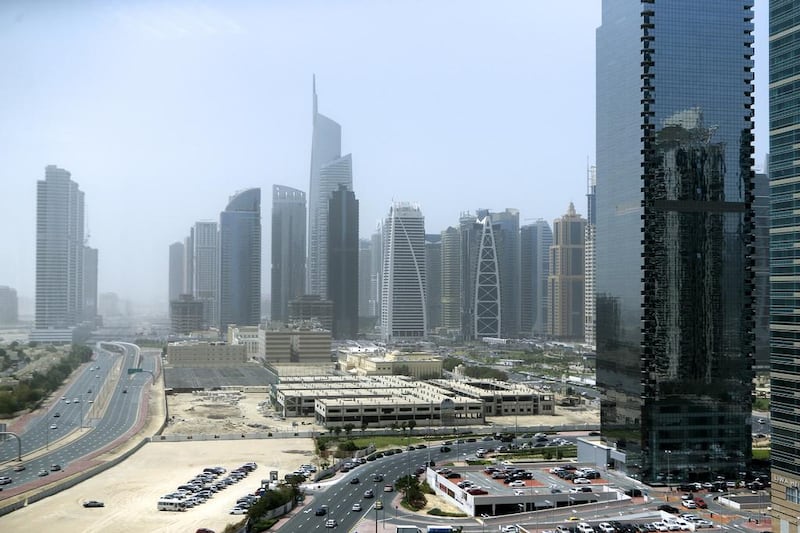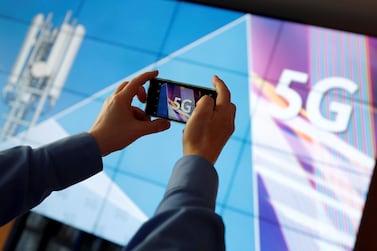Jumeirah Lakes Towers in Dubai will be the first area in the UAE to be powered by a 5G phone network, Etisalat and Dubai Multi Commodities Centre announced on Sunday.
The introduction of the system is scheduled to begin this week. “This will transform the JLT community to become the first 5G-powered smart district in the region, making it a more seamless, efficient and safe experience for its members, residents and visitors,” said Salvador Anglada, group chief business officer of Etisalat.
“Both entities will work to empower the community, reduce environmental footprint, provide smart solutions to improve infrastructure and deliver efficient public utilities.”
The release of 5G comes months after the UAE was named as the country with the fastest home internet in the region.
“This is an exciting announcement and one that will come as welcome news to everyone connected to DMCC, the Jumeirah Lakes Towers community and the emirate of Dubai as a whole,” said Feryal Ahmadi, chief operating officer of DMCC.
“With Etisalat Digital’s support, DMCC will introduce a new wave of innovation to Dubai and completely transform how we respond to the needs of the community.”
She said the 5G system would boost connectedness and “deliver a cleaner and more sustainable environment for all”.
Eitsalat said it would also provide smart solutions related to parking, street lighting, air quality, noise pollution, environmental performance and traffic monitoring.
What is 5G?
It is the fifth generation of mobile internet connectivity that promises much faster data download and upload speed, greater coverage and more stable connections.
It will allow everything that can be done with smartphones now to be done much faster and more seamlessly. It is also a step towards greater interconnectivity and the Internet of Things.
Some say 5G will be our gateway to artificial intelligence, functioning autonomously and exchanging information with other computers or robots. Wearable health devices will run on 5G and alert a hospital if an emergency arises.
Businesses are also expected to be transformed by the network, particularly the retail, manufacturing, logistics, and car industries. For the individual, mobile videos and video calls will be less glitchy.
How does it work?
Without getting into technicalities, 5G is a new radio technology where people will begin to really feel the difference only once network operators invest in new masts and transmitters. Download speeds are expected to be up to 20 times faster once 5G is fully embraced worldwide.
Where has it been implemented?
South Korea became the first country to roll out 5G in April. By the end of June, more than 1.6 million people had switched to the new service.
5G is also available – on a much smaller scale – in the US, UK and Germany but most countries plan to introduce the network in 2020.
However, smooth sailing is not guaranteed. 5G has come under fire from South Koreans for being slower than expected and for the lack of applications that use it. Analysts have put this down to too few base stations for nationwide coverage.








